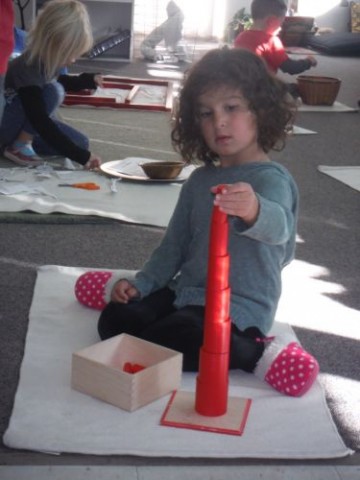Montessori and the Real Building of Self-Esteem

Edward Fidellow

Edward Fidellow
“You should look down at the rocks and make sure they never crash against them, and prepare them to ride the waves.”
Dr. Kenneth Ginsburg

Let’s be honest, this parenting gig doesn’t come with a description of roles and responsibilities that make it completely clear what is expected at all times. Giving our absolute dedication and best effort just doesn’t look the same from day to day (or moment to moment!) Throw your hands up (or hide in shame) if you have ever ended the day thinking “I am an awful person…my child probably went to bed thinking how awful I am and they don’t feel safe and they don’t feel happy and I’ve ruined everything.” Just me? Didn’t think so.
This article really spoke to me in terms of how we can (and should) give ourselves a break. News flash – we are raising our kiddos to be humans. Giving them human experience, whether we feel good about it at the end of the day or not, is essential to their success and existence. I have decided that I have three main goals, call them standards if you wish, for parenting:
I am the first to admit that I am imperfect and I question myself constantly when it comes to parenting. But at the end of the day, I really do think that there is more than one right way. My wish for you is that each day ends with perfect love, even when everything else seems to have gone awry.
Best wishes for a fun-filled weekend,
Britney
My props to Dr. Kenneth Ginsburg and his Lighthouse Parenting strategy, a true delight and inspiration. His methods are discussed at length in Raising Kids to Thrive: Balancing Love With Expectations and Protection With Trust. (MCS parents – don’t forget to log in to your Compass account to place your Amazon order.)